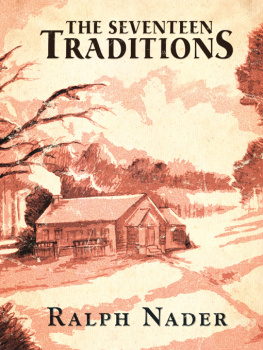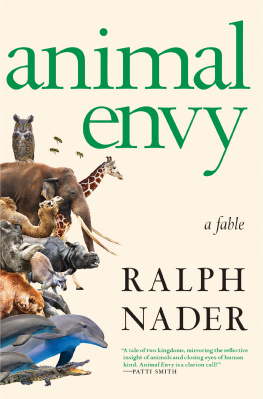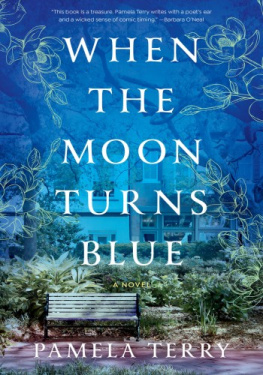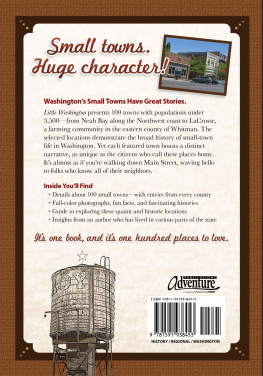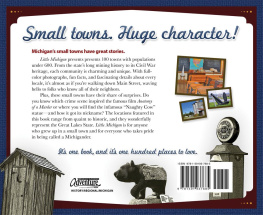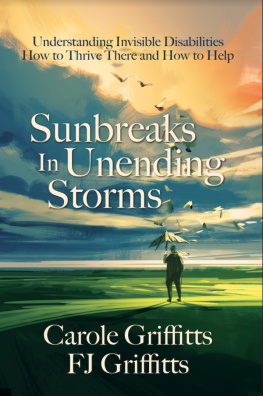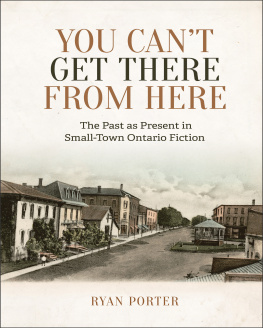Nader - The Seventeen Traditions
Here you can read online Nader - The Seventeen Traditions full text of the book (entire story) in english for free. Download pdf and epub, get meaning, cover and reviews about this ebook. year: 2013;2014, publisher: HarperCollins e-Books, genre: Home and family. Description of the work, (preface) as well as reviews are available. Best literature library LitArk.com created for fans of good reading and offers a wide selection of genres:
Romance novel
Science fiction
Adventure
Detective
Science
History
Home and family
Prose
Art
Politics
Computer
Non-fiction
Religion
Business
Children
Humor
Choose a favorite category and find really read worthwhile books. Enjoy immersion in the world of imagination, feel the emotions of the characters or learn something new for yourself, make an fascinating discovery.
- Book:The Seventeen Traditions
- Author:
- Publisher:HarperCollins e-Books
- Genre:
- Year:2013;2014
- Rating:4 / 5
- Favourites:Add to favourites
- Your mark:
- 80
- 1
- 2
- 3
- 4
- 5
The Seventeen Traditions: summary, description and annotation
We offer to read an annotation, description, summary or preface (depends on what the author of the book "The Seventeen Traditions" wrote himself). If you haven't found the necessary information about the book — write in the comments, we will try to find it.
Nader: author's other books
Who wrote The Seventeen Traditions? Find out the surname, the name of the author of the book and a list of all author's works by series.
The Seventeen Traditions — read online for free the complete book (whole text) full work
Below is the text of the book, divided by pages. System saving the place of the last page read, allows you to conveniently read the book "The Seventeen Traditions" online for free, without having to search again every time where you left off. Put a bookmark, and you can go to the page where you finished reading at any time.
Font size:
Interval:
Bookmark:

T O MY PARENTS,
N ATHRA N ADER AND
R OSE B OUZIANE N ADER
T O SHAFEEK, C LAIRE, AND L AURA
A ND TO YOUNG PARENTS

T he bell rang at Central School one early autumn day, signaling that our eighth-grade classes were over. The other schoolboys and I headed boisterously for the exit doors. As we passed a girl in our class, one of the boys cocked his head toward her, looked at us, and said pointedly, What a pig.
She heard him, of course, and as I looked back I saw her shattered expression before she walked away. The boys just laughed loudly. Ugh, one of them added, seconding the remark. I was stunned. This girl was one of our friendliest, and most helpful, classmates. Wed all been in the same class with her since the first grade. Everyone liked her. As I walked home, I found myself unable to shake off this sudden episode. What was her crime, I asked myself? She wasnt one of the beauties in our class, but was that her fault? Did she deserve this boys casual cruelty? Nothing of this kind had happened when we were in the first, second, third, fourth, fifth, sixth, or seventh grades. Why now?
For the rest of that day and into the evening, I couldnt stop thinking about that girls crestfallen expression, and the sneering, insensitive look on the boys face. The fellow whod made the comment wasnt a class bully or a loudmouth. But that afternoon, glancing at an innocent thirteen-year-old girl, he was hurtful to her. She was just another girl in the class, perhaps a little plain-faced and pale. What had she done to warrant his verbal fury? Was his real goal to impress us, by demonstrating that he knew who was attractive and who wasnt? Whatever the explanation, I suspected that the onset of puberty had taken over the boys mindthat the lower half of his growing body was taking over his top half, where his brain lived, displacing years of looking at the girl for who she was and not how she looked. In this respect, that boy had been a better person at nine or ten than he was that day.
Id like to think that my siblings and I werent guilty of such behavior. But when we did act up, my mother had a standard response. Whenever she felt wed let our baser instincts stop us from thinking for ourselves, shed say, I believe its you. Theres nothing wrong with that girl, shed have told that thoughtless boy. But there is something wrong with you, for prejudging her that way. That always set us straight.
As an adult, Ive often noticed how common it is for people to accept conventional, commercially driven definitions of human beautyindeed, to accept conventional ideas of all kinds. And Ive always been grateful to my childhood, in all its fullness, for teaching me to challenge preconceptions and reject conformity or coercion, those influences that inflict so much pain, deprivation, and tragedy upon our communities and societies today. Despite all my years of higher education at Princeton University and Harvard Law School, I might never have learned to think this way without the guidance of my parents, my family, and the small-town community where I grew up.
In these times of widespread conformity and self-censorship, I find myself thinking back upon my childhood, recalling what made it special for me and for my brother and sisters. Recently Ive found myself thinking that I should share these memories with others, in the hope that they might offer guidance and inspiration for the parents, children, and grandchildren of today. And what I hope will be especially helpful, in this very different world we inhabit, are my memories of the traditions in which my childhood was immersedtraditions that remain vivid in my mind, and that guide me to this day.
I am often asked what forces shaped me. Rather than trying to give a full answer to that questionwhich would take longer than a limited interview would allowI often reply simply, I had a lucky choice of parents. My brother, two sisters, and I had a remarkable father and mother, who cared for us in both direct and subtle ways. The examples of their lives set us on the solid paths we have explored ever since.
Among other things, my parents were responsible for passing down the traditions they had learned from the generations before themtraditions they refined and adapted to the unfamiliar country and culture to which they had emigrated early in the twentieth century. These traditions arose from the received wisdom and customs they had learned during their own childhoods in Lebanon, elaborated by their own judgments, sensibilities, and changing circumstances. In turn, they were nourished by regular feedback from their acculturating children, which they encouraged.
Mother and Father each lived to be just short of a century old; we benefited from their seasoned perspectives and wisdom for many, many years. They were forever young, exemplifying my mothers strong belief in the importance of remaining interested and interesting. And they succeeded in doing this throughout their lives, attracting ever-younger friends to visit, whether we children were home or not. They created the strong family base from which my siblings and I sallied forth into the wider world, full of new experiences and high expectations.
That base was, in part, a matter of locale. My parents made a conscious choice to move to Winsted, a small town nestled in the Litchfield Hills of northwestern Connecticut, where I was born in the middle of the Depression.
Winsted was, and wasnt, a typical New England town. Through it ran the Mad River and the Still River, named by the settlers who arrived in those dense woods in the latter part of the eighteenth century. Connecticut is dotted with such mill towns, which depended on the rivers to power their factories. Most of these towns were small, dominated by one or two large factories. Winsted, on the other hand, had spawned a hundred factories and fabrication shops by 1900, and these factories in turn gave rise to homes, shops, and other businessesincluding probably more drinking bars per square yard than any town east of the Mississippi. The town of Winchester, which includes Winsted, is shaped like a lopsided rectangle that angles from the southwest to the northeast. The land is very hilly with ridges, upland lakes, and the valley where most of the factories, stores, schools, and homes were located. When my father opened his restaurant-bakery along the towns mile-long Main Street, the local population was ten thousand, in an area roughly the size of Manhattan.
It was a walking town. In those days, youngsters didnt have to rely on Mama or Papa to drive them around. Nor were there school buses, except for the really distant rural homes. You walked. I walked. It was a good town for walking, with its tree-shaded streets, well-kept sidewalks, and access to just about everything for our needs, wants, and whims. Just a brisk walk awayno more than fifteen to twenty minuteswere the schools, the playgrounds, most of the homes, the town hall, the movie theater, the shops, the factories, the daily newspaper offices, the library, the historical society, the hospital and churches, police and fire departments, dentists, doctors, lawyers, the railroad station, the post office, the electric and telephone companies, and the county courtroom.
Winstedites could walk up nearby hills to visit the dairy farms where their milk came from, to relax at Highland Lake (the second largest natural lake in Connecticut), or to explore any number of quieter meadows, woods, and streams. It was a good community for families raising children, with no cement, asphalt, or skyscrapers sealing the people off from the land, the water, their beloved gardens, or the sky, with its breezes and horizons. Nature, unsequestered, inspired my mother to sing so often, Oh, what a beautiful morning!
Font size:
Interval:
Bookmark:
Similar books «The Seventeen Traditions»
Look at similar books to The Seventeen Traditions. We have selected literature similar in name and meaning in the hope of providing readers with more options to find new, interesting, not yet read works.
Discussion, reviews of the book The Seventeen Traditions and just readers' own opinions. Leave your comments, write what you think about the work, its meaning or the main characters. Specify what exactly you liked and what you didn't like, and why you think so.

